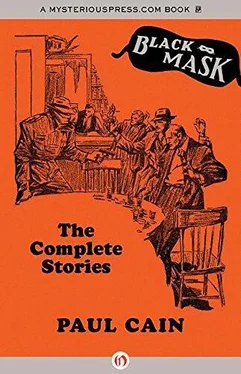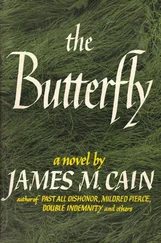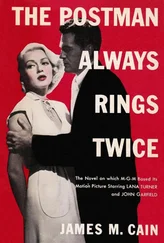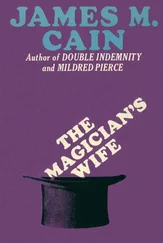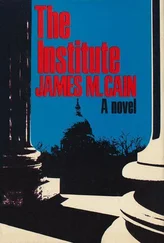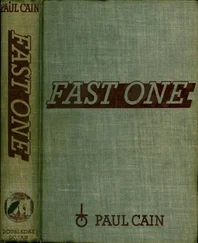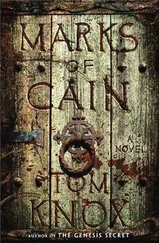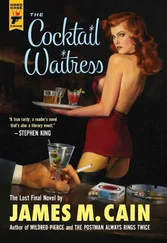Brennan said: “We’ve got a date with Joice Colt.”
Harley’s face became very serious. “You shouldn’t kid about it Brennan,” he said — “the poor kid’s in a bad jam.”
“I’m not kidding.”
“Do you know where she is?” Harley was leaning forward.
“Sure.” Brennan nodded slowly.
Harley’s eyes brimmed with sincerity. “I’d like to help her,” he said. “I’d like to help her get away — or something. Is there anything I can do?”
Nick said: “You can put your hands on the table.” Nick had tilted his chair back; his hands were deep in the pockets of his dark blue coat. The cloth of the right pocket bulged and a dark blunt point protruded towards Harley.
Harley cleared his throat. “Don’t do anything you’ll be sorry for,” he said slowly. He looked up and back of Nick. The fat bald Negro who had come in with Harley was leaning against a table and he held a heavy nickel-plated revolver in front of his big paunch. His bulging eyes were fixed in white bloodshot vacancy on the back of Nick’s head; the nostrils of his wide, flat nose were flared. The cream-colored Negro in dinner clothes had circled to the outer door. He, too, held a revolver, and as Harley moved his head slightly, he came forward and stood about ten feet back of Brennan.
The waiters, at the table against the wall, whispered together and then were suddenly silent. The waiter who had taken Brennan and Nick’s order came in through one of the swinging doors to the kitchen with two drinks on a tray; he stared at Harley and at the fat Negro and then started back into the kitchen.
Harley said: “Bring the gentlemen their drinks.”
The waiter came over and put the glasses on the table and went back into the kitchen.
Brennan took the cigar out of his mouth and put it in an ashtray on the table. “You murdered Barbara Antony,” he said. He spoke without looking at Harley, his eyes were fixed on the white tablecloth. “You made it look like suicide — the suicide motive looked like a cinch, with Lou getting out of the pen and Barbara being scared of him and all. You thought Joice would back up the suicide slant but she didn’t go for it so big — and when your man came up to smash the glass you’d been careless enough to leave in one piece, he slugged me and took Joice with him so she couldn’t talk, and so it would look like she’d given Barbara the junk and ducked.”
Harley smiled sadly, shook his head. “Brennan, you’re off your nut,” he said.
“You’ve got Joice,” Brennan went on — “here or someplace. You made her pull that confession act for me over the phone from the little joint down the street because you were afraid I’d trace the call — an’ you didn’t think that nigger would talk...”
Harley interrupted, spoke with elaborate patience as if reasoning with a child: “In the first place, Brennan, I was at the Glass Slipper from five until seven-fifteen—”
Brennan said: “I’ll lay ten to one I can break that alibi.”
Harley shook his head again.
“And what’s more,” Brennan went on — “I’m so sure I can break it, an’ I’m so sure it happened the way I’ve said that I’ve written the story — it runs tomorrow, with swell pictures of you an’ Barbara in four colors.”
Harley laughed. Then he said very seriously, “Brennan, you’re crazy. If you run that story I’ll sue that cheap sheet of yours for every nickel it’s got. I’ll run you and Johnson and your whole damned outfit out of the newspaper business — out of New York, by God!”
“I’ll take that chance.” Brennan smiled easily, glanced up at the fat Negro behind Nick. “It’d be a swell clincher, an’ Johnson could write a pip of a finish for my story if anything should happen to Nick or me.” He turned his smile to Harley. “Johnson knows where we are — and he knows we’re after evidence against you.”
Harley did not answer.
Brennan went on: “Don’t you think you’d better have your boyfriends put those cannons away? They make me nervous.”
Harley stood up slowly. “You get to hell out of here Brennan” he said — “you and your two-bit gunman.” He glanced contemptuously down at Nick. “And go ahead with that story and see what happens to the Eagle . Go on — beat it!”
Brennan shook his head. He said: “Uh-huh. We came after Joice — we’ll take her with us.”
No one moved or spoke for perhaps ten seconds; then Brennan took his glass of whiskey up from the table and drained it.
Harley was very white. The skin was drawn tightly over his jaw muscles, his mouth drawn to a thin line. He twisted his body towards Nick slowly and then his face relaxed, puckered to a thin, forced smile. He said: “Okay.” He shook his head at the cream-colored Negro. “You and Ernie wait down here.” He jerked his head at Brennan and turned and went towards the door near the orchestra platform.
Brennan and Nick got up; Nick went swiftly behind Harley to keep close to him and Brennan followed more slowly. They went into a small office and Brennan closed the door; they crossed the office to another door, went through to a dimly lighted hallway and up two flights of heavily carpeted stairs. Harley knocked at a door at the end of the dark second-floor hallway. The door opened and Harley went in and Nick went in directly behind him. Nick had taken the small Luger out of his pocket, held it against Harley’s back. Brennan stopped in the doorway and leaned against the frame.
The room was very large, very dimly lighted. There was a floor lamp with a deep red shade that threw a circle of warm light on a couch against one wall. Joice Colt was lying on the couch. She lay on her side and her eyes were nearly closed; her mouth was curved to a drunken and meaningless smile.
There was a man standing just out of the circle of light. There was not enough light to see him very clearly but he was a very tall man and there was something in the way he stood that made Brennan sure he was the man who had knocked him out in Joice’s room. Another figure, who in the semidarkness appeared to be a Negro woman, had opened the door; she stood with her hand on the edge of the door and her head was turned towards Harley and Nick.
Harley said: “Put it away, Sam.”
As Brennan’s eyes became used to the darkness he saw that the tall man held a gun in his hand — the same short, blunt automatic he had used on Brennan.
The tall man was silent, did not move.
“Put it away.” Harley’s toned was plaintive. “This guy” — he jerked his head at Nick who stood very close behind him — “is itching to let me have it.”
A new thin voice said sarcastically, “Fancy that!” from the darkness beyond the Negress.
At the same instant Harley whirled, grabbed Nick’s arm; there were two spurts of bright yellow flame in the darkness, and deep beating sound. Harley and Nick were locked in a low, savage dance; Nick’s gun roared, belched yellow flame. As Brennan went forward the lamp was struck, the room went black, lighted only by the searing yellow glare of gunfire. Brennan dimly saw Harley and Nick topple, fall, still locked together; then it felt as if something exploded in the top of his head, the darkness was split by a great blinding light and he fell forward, down, into nothingness.
The high-pitched brassy music of a phonograph came to Brennan before he opened his eyes. He listened to it a long time. It sounded very far away. His head was one vast pain and he did not want to open his eyes because it might hurt more. He was lying on his back and he moved one hand up slowly and felt his face; it was wet and sticky and he thought about it a little while and knew that it was blood. It was very hard to think.
After a while he opened his eyes and looked up at a dingy ceiling of another room. He knew when he opened his eyes that the phonograph was not far away, but was in the room, and he turned his head very slowly and saw it — a small garishly decorated box — on a table across the narrow room.
Читать дальше
